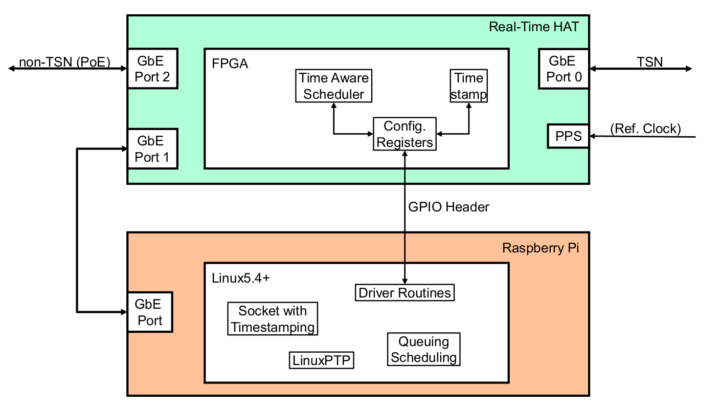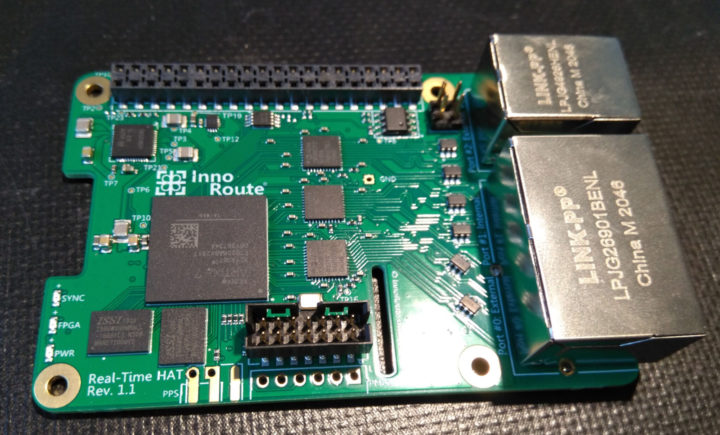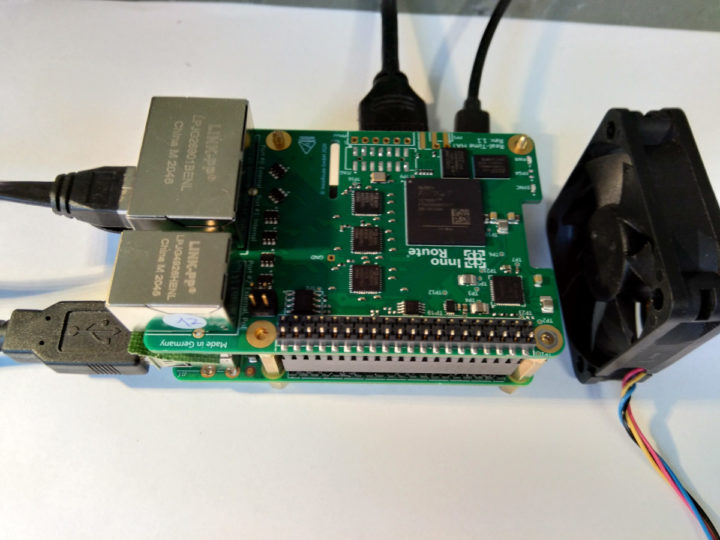InnoRoute Real-Time HAT adds IEEE1588 Precision Time Protocol (PTP) to Raspberry Pi 4/3 via a Xilinx Artix-7 FPGA and three Gigabit Ethernet ports.
The Precision Time Protocol (PTP) is used to very accurately synchronize clocks throughout a computer network to enable measurement and control systems. It is often found in embedded microcontrollers or processors from Texas Instruments, STMicro, and more recently, in Intel Elkhart Lake & Tiger Lake H processors. It can notably be used for Time-Sensitive Networking (TSN) and Audio Video Bridging (AVB).
InnoRoute Real-time HAT specifications & key features:
- FPGA- Xilinx Artik-7 FPGA
- Some RAM
- Networking
- Gigabit Ethernet port 0 with IEEE1588/TSN signaling
- Gigabit Ethernet port 1 with input from Raspberry Pi 4
- Gigabit Ethernet port 2 with PoE, without TSN
- Host interface – 40-pin Raspberry Pi header mostly for SPI and I2C interfaces used for configuration.
- Misc – 3x LEDs, JTAG and PMod connectors, EEPROM (for Raspberry Pi HAT compliance)
 The Real-Time HAT enables various applications including Bridged TSN endpoint, TSN endpoint adapter, Network TAP with low latency, empty FPGA design for HDL programmers, TSN test device, and packet injector/ analyzer.
The Real-Time HAT enables various applications including Bridged TSN endpoint, TSN endpoint adapter, Network TAP with low latency, empty FPGA design for HDL programmers, TSN test device, and packet injector/ analyzer.
You’ll find documentation and source code on Github. But as noted by some commenters on Hackaday, it’s a shame that an additional board is required, as while Raspberry Pi 4 comes with BCM54213PE Gigabit Ethernet transceiver, the Raspberry Pi Computer Module 4 ships with the Broadcom BCM54210PE chip that includes IEEE1588 PTP protocol support.
So in theory, if you had a carrier board that routes the required signals, the Raspberry Pi CM4 modules would support the PTP protocol out of the box without extra hardware, but in practice, it’s more complicated than that as discussed on a lengthy Github thread.
InnoRoute is currently taking pre-orders (at an undisclosed price) for Real-time HAT, and another variant called “Real-Time HAT Automotive” directly on its website. Note that the company only provides support for Raspberry Pi 4, and Raspberry Pi 3 support would have to be implemented.

Jean-Luc started CNX Software in 2010 as a part-time endeavor, before quitting his job as a software engineering manager, and starting to write daily news, and reviews full time later in 2011.
Support CNX Software! Donate via cryptocurrencies, become a Patron on Patreon, or purchase goods on Amazon or Aliexpress






